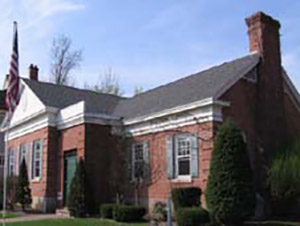
Historian and stimulating lecturer Tom Henry visits Oneida Public Library on Saturday, Oct. 15, at 11 a.m. to deliver a timely talk on U.S. presidential elections that were hotly contested even after the elections were over.
Henry will look at three presidential elections in which the system failed and little known provisions of the U.S. Constitution had to come into play: the 1800 election in which the presidential candidate, Thomas Jefferson, tied in the Electoral College vote with his own Republican Party vice-presidential running mate, Aaron Burr; the 1876 race between Samuel Tilden and Rutherford B. Hayes that ended up with a stymied Electoral College and the inauguration of the loser; and the 2000 election that challenged Florida’s electoral votes and ended with the Supreme Court as the decision-maker between George W. Bush and Al Gore.
Henry will provide the background, the sources of the bitter controversies and the consequences for the nation in the wake of these contested elections. He will also draw parallels with the current presidential race and its possible outcomes, whether in the popular vote or in the Electoral College as it is set up now.
Henry, who is a retired social studies teacher at Liverpool and currently a very popular instructor in American history at Oasis Institute of Syracuse, has often lectured at the OPL, most recently last June on nasty presidential races. He has also talked at the OPL about five “forgotten” presidents, the U.S. at the outbreak of World War II, the role of Upstate New York volunteers in the Battle of Gettysburg and the Union’s prisoner of war camp in Elmira.
At Oasis, Henry regularly conducts lecture series on many facets of U.S. history, including the Civil War, presidential histories, the Supreme Court and the Constitution.
Henry’s upcoming lecture on contentious presidential elections is free and open to all. For more information, stop by the Oneida Library, 220 Broad St., or call 315-363-3050.

New York has enacted the National Popular Vote bill.
By 2020, the National Popular Vote bill could guarantee the presidency to the candidate who receives the most popular votes in the country, by changing state winner-take-all laws (not mentioned in the U.S. Constitution, but later enacted by 48 states), without changing anything in the Constitution, using the built-in method that the Constitution provides for states to make changes.
Every vote, everywhere, for every candidate, would be politically relevant and equal in every presidential election.
No more distorting and divisive red and blue state maps of pre-determined outcomes.
No more handful of ‘battleground’ states (where the two major political parties happen to have similar levels of support among voters) where voters and policies are more important than those of the voters in 38+ predictable states, like New York, that have just been ‘spectators’ and ignored after the conventions.
The bill would take effect when enacted by states with a majority of the electoral votes—270 of 538.
All of the presidential electors from the enacting states will be supporters of the presidential candidate receiving the most popular votes in all 50 states (and DC)—thereby guaranteeing that candidate with an Electoral College majority.
The bill was approved this year by a unanimous bipartisan House committee vote in both Georgia (16 electoral votes) and Missouri (10).
The bill has passed 34 state legislative chambers in 23 rural, small, medium, large, red, blue, and purple states with 261 electoral votes.
The bill has been enacted by 11 small, medium, and large jurisdictions with 165 electoral votes – 61% of the 270 necessary to go into effect.
NationalPopularVote